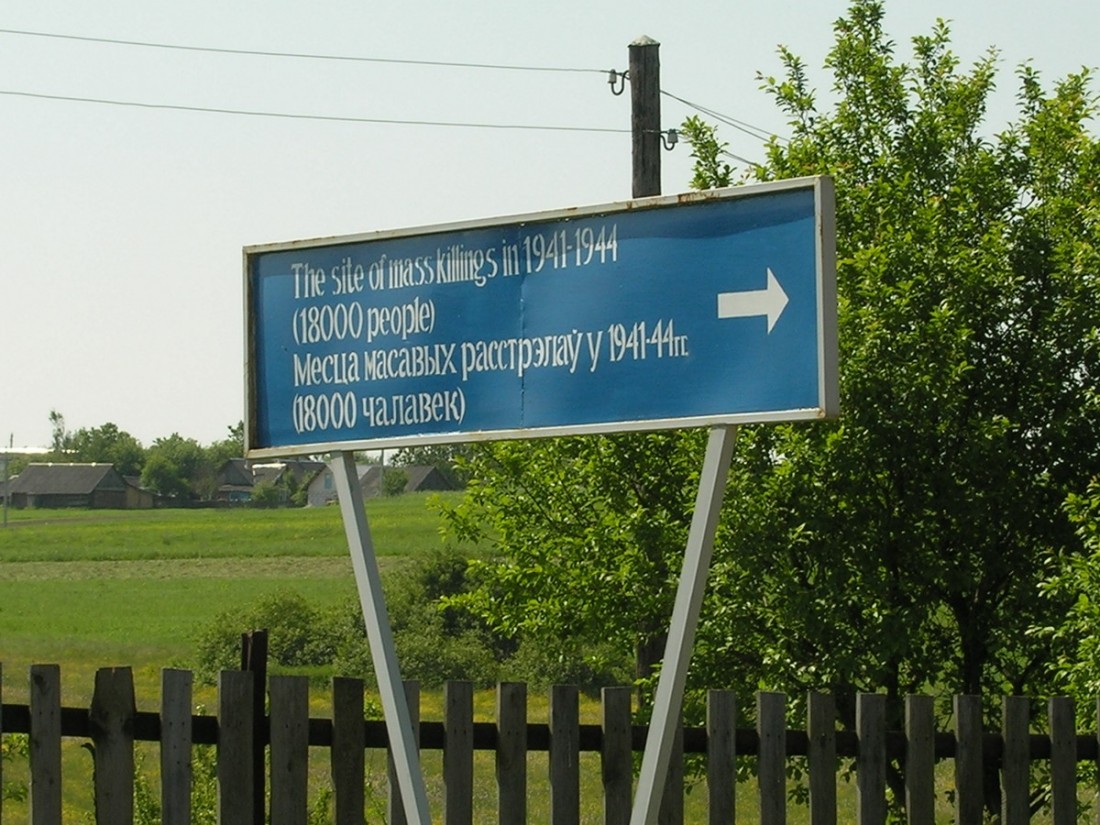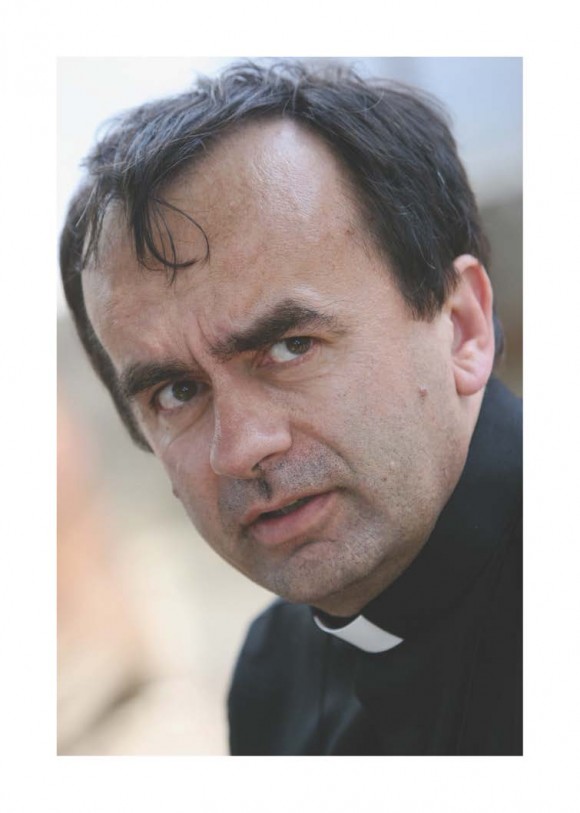
A Boy’s Unanswered Question: Father Patrick Desbois’ Journey into History and Memory
November 12, 2014
If you are reading this blog, then you undoubtedly already have an interest in the history of the Holocaust. How you made that connection varies from person to person. For some, the link is family history; for others, some aspect of the story has drawn you in and motivated you to learn about this difficult history. Father Patrick Desbois’ interest began with a mysterious unanswered question that he encountered during his childhood and could not forget.
Born ten years after the end of the Second World War, Desbois grew up in a semi-rural area in the Burgundy region of eastern France. Memory of the war was all around him. He heard tales of the heroism of resistance fighters along with stories of neighbors who had collaborated with the Germans. But ultimately it was what was unspoken within his family that led him into a very different aspect of the war’s history, the genocide of the Jews on the other side of the continent.
Patrick’s grandfather Claudius, who served in the French army, was captured during the Battle of France and sent to a prisoner of war camp in Germany. After a failed escape attempt, Claudius was deported to Stalag 325 in Rawa-Ruska in German-occupied Ukraine. As a boy, young Patrick repeatedly asked his grandfather about his experiences in this camp, but his grandfather said very little. Patrick learned only that his grandfather had suffered from hunger and thirst in the camp. “‘But it was worse for the others!’” was all he would say. Who then were the mysterious “others”?
These others, Patrick discovered, were Jews – humiliated, brutalized, and murdered during the Holocaust. Yet it would be years before he understood what his grandfather had witnessed. As a young man, Patrick Desbois studied mathematics and then taught the subject in a French school in Burkina Faso in Africa. He also spent time working with Mother Teresa in Calcutta. He entered the seminary and was ordained as a Roman Catholic priest in 1986. No matter what he was doing, he could not shake the lingering questions: Who were the others? And what were their experiences? Without knowing exactly why, Patrick felt he must learn more. He studied Hebrew, made connections with the Jewish communities in France, and attended seminars on the Shoah at Yad Vashem in Jerusalem.
In 2002, Father Desbois traveled to Lviv in western Ukraine to find the Rawa-Ruska camp and to make a personal connect to his grandfather’s wartime experiences. That initial journey became the first of many to discover the story of the Jews, Roma, and other victims murdered by the mobile killing units, the
Einsatzgruppen
, in Eastern Europe. For the last decade, Father Desbois and the organization he founded, Yahad-In Unum, have researched over 1,300 killing sites and recorded over 3,500 testimonies of eyewitnesses in Ukraine, Belarus, Russia, Poland, Romania, Moldova, and Lithuania. A boy’s unanswered question led to a quest that has become an invaluable contribution to history and memory, affirming what we can achieve when we pursue the questions that matter most to us.
Please join us in Memorial Hall at Chapman University on Monday, November 17, 2014 at 7 p.m. to hear Father Patrick Desbois speak of “The Holocaust By Bullets: The Untold Story.” Copies of Father Desbois’ book,
The Holocaust By Bullets
, will be available for purchase before and after the presentation and a book signing will follow the lecture.
For more information, please visit
https://blogs.chapman.edu/holocaust-education/2014/10/30/father-patrick-desbois/

